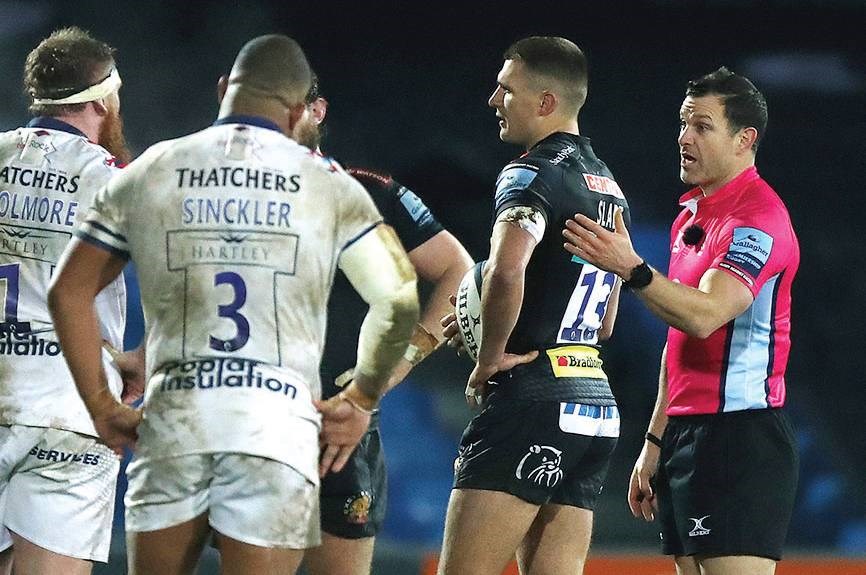Refs should pay price for poor performances

When a player gets cited, it means one of two things: the referee and his team missed an incident, or they saw it and took a different view from that of the citing officer.
When the subsequent disciplinary hearing sides with the Citing Officer's assessment, it means the officials got things wrong.
If that sounds harsh then perhaps it is, as anyone can miss something, or see things differently in the heat of the moment.
It's a valid question, however, to ask how many times a referee can see a disciplinary panel go against their on-field decision before it becomes cause for concern? By my reckoning there were eleven citings for the period covering last season and the first six rounds of this one. Of those, three were dismissed, including two where it was found that JP Doyle had been right – it's one of life's mysteries why an excellent ref like him was chosen for redundancy by the RFU – and of the other eight, three refs were involved in one each, but another ref had no fewer than five of his decisions investigated by a disciplinary panel.
The problem with this is that results are potentially affected when a red card incident is missed, or is seen but the correct sanction isn't applied – citings ensure a guilty player gets punished, but it disadvantages the team against whom the offence happened. In the recent Gloucester v Sale match we now know that two red card offences were missed.
Had the first one been seen then Gloucester would have been without Ed Slater for the final 32 minutes of the match, and then Sale would have been without Dan Du Preez for the final five minutes.
Gloucester lost that game 19-22, meaning they took one point and Sale took four. We'll never know, but if Sale had had an extra man for 27 minutes might they not have scored the tries needed to gain them an extra point, and leave Gloucester with nothing? Similarly, Kyle Sinckler swore at the ref in Bristol's defeat of the Exeter Chiefs, and we now know he should have seen a red card early in the second half – to many of us it was as clear a case of disrespecting an official as there could be! He didn't go, and Bristol went on to beat the double champions – they might still have come out on top with 14 men, but there has to be a doubt about that. These things matter, and phrases like ‘the glorious uncertainty of sport' are just tosh.
In the amateur days these things could be laughed off over a few post-match beers – the refs were amateurs too, so dodgy decisions were to be expected. Everyone appreciates what a tough job referees have, and it's made tougher when their assistants or the TMO lets them down, but this is professional sport, and the players' professionalism has to be matched by that of the officials.
The RFU won't comment on specific incidents, or about an official's performance, and that's the right approach as the ref 's job carries enough pressure without public statements adding to it, but you would love to be a fly on the wall during some of the post-match reviews. An RFU spokesperson said: “While we know that sometimes things are missed or an incorrect decision made, our match officials work very hard together every week to review and learn from their own and each other's matches and to maintain the high-standards that they set themselves.”
Furthermore, they reiterated that match appointments are made on a week-by-week basis, but I think supporters would like to see clearer evidence that, when a ref has an offday or makes what are subsequently confirmed to be high-profile mistakes, action is taken, and we don't just see the same faces week after week, irrespective of their recent performances.